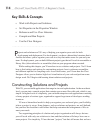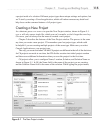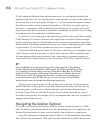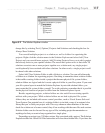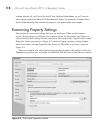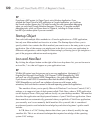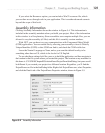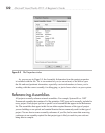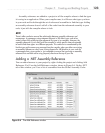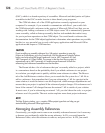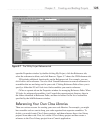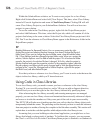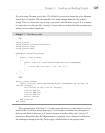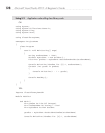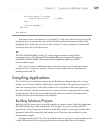
122 Microsoft Visual Studio 2010: A Beginner’s Guide
As you can see in Figure 5-5, the Assembly Information from the project properties
is included with the file. This is convenient for you (or an end user) to be able to open
the file and read pertinent information, especially version information, to know you’re
working with the correct assembly, for debugging, or just to know what is on your system.
Referencing Assemblies
All projects normally reference external assemblies. For example, System.dll is a .NET
Framework assembly that contains all of the primitive .NET types and is normally included in
every project. Each project type has a specific set of assemblies that appear in the References
list. The assemblies that appear in this list are either required because of the type of project
you are building or are optional and contain libraries that are commonly used for that type of
project. You are free to remove assembly references if you like, but be aware that removing
a reference to an assembly required for that project type is likely to result in your code not
being able to compile.
Figure 5-5 File Properties window



